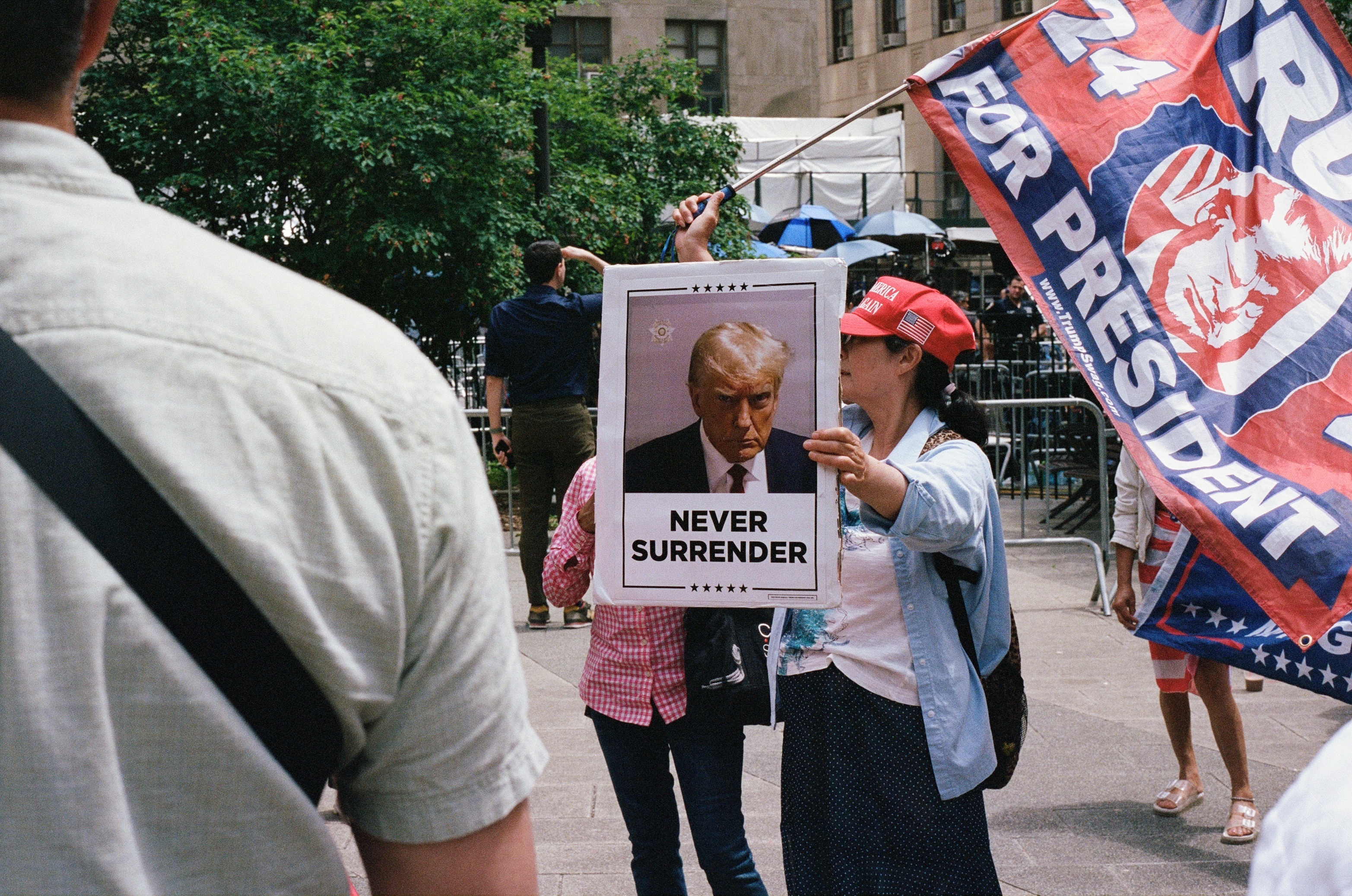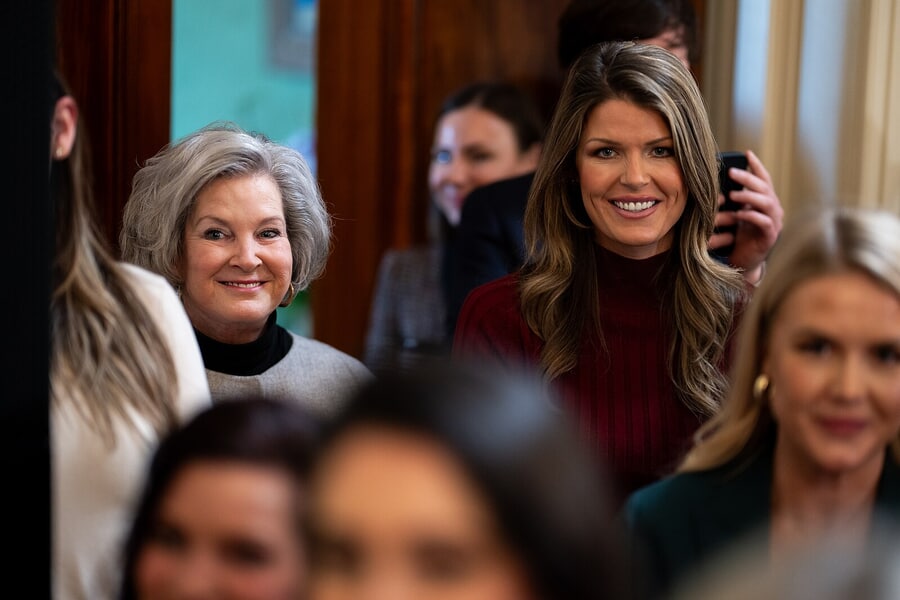The Situation: Ending the Trump Cases the Right Way
What to make of the flurry of activity as Trump’s criminal cases wind down.

Published by The Lawfare Institute
in Cooperation With

The Situation on Monday contemplated what happens when nothing happens.
Today, let’s talk about the end game in the Trump criminal litigations.
As I write these words, the state of play is roughly as follows:
Trump’s sentencing in the New York criminal matters is scheduled for Friday morning. He has asked the Supreme Court to intervene to prevent it, after a New York appeals court refused to do so.
U.S. District Judge Aileen Cannon has enjoined the release of Jack Smith’s final report.
The Justice Department has announced in a filing before the 11th Circuit Court of Appeals that it intends to release the Jan. 6 half of that report, but that it will not release the classified documents half while litigation remains pending against two of Trump’s co-defendants. This latter decision, the department notes, comes “at the recommendation of the Special Counsel.”
Things are moving quickly, so by the time you read this, the ground may have shifted on any of the above issues.
I offer the following loosely connected thoughts to help readers make sense of the flurry of activity going on here.
First, very little—perhaps nothing at all—of practical consequence turns on whether the sentencing in New York actually takes place or not. Justice Juan Merchan has already all-but-declared that he is not going sentence Trump to any jail or probation:
[T]he Court's inclination to not impose any sentence of incarceration, a sentence authorized by the conviction but one the People concede they no longer view as a practicable recommendation. As such, in balancing the aforementioned considerations in conjunction with the underlying concerns of the Presidential immunity doctrine, a sentence of an unconditional discharge appears to be the most viable solution to ensure finality and allow Defendant to pursue his appellate options.
Trump will, whether or not the sentencing happens, take the oath of office 10 days later, and he will do so having been found guilty by a jury of 34 felony counts of causing the falsification of business records to cover up a hush money payment to an adult film performer.
No aspect of this conviction will, either way, encumber his authority to function as president. He will not have to avoid the state of New York as the nation’s chief executive, as Aaron Burr once had to avoid the state of New Jersey as vice president in the wake of his duel with Alexander Hamilton there. Whether the sentencing takes place on Friday, later, or not at all, a court higher than Justice Merchan’s will ultimately decide whether Trump’s conviction is a valid one. In one case, an appeals court will hear a criminal appeal in the regular-ish course of business. In the other case, a court over the next few days will somehow put a stop to things, either in the name of pre-presidential immunity or in the name of some other made-up nonsense. From a practical standpoint, it couldn’t matter less whether the sentencing actually happens.
Second, its practical meaninglessness aside, I care a great deal about the sentencing in New York. The reason has to do with how the Trump trials are postured for posterity. It is one thing to not be able to bring Trump to trial for his myriad other crimes because he has been elected as president. I accept the correctness of the traditional Justice Department view that a sitting president cannot be criminally prosecuted, and I accept as well that this means that those cases must go away—however vile the underlying conduct may have been. The vote counted this week in Congress must override the criminal justice interest in prosecuting those cases.
It’s quite a different matter, in my view, to say that a case that was tried before a jury and produced a conviction before the election should magically now go away because the defendant won that election and is now to become president. The vote that took place Nov. 5 is a sacred thing, and it’s fine for it to change the future. But it doesn’t change history. It doesn’t change what happened, what a jury found. It may, and will, legitimately change what Justice Merchan chooses to do with that conviction, but it can’t plausibly change the fact of a conviction that predates not merely the coming inauguration but the election itself. It would be a positive absurdity for Donald Trump—a private citizen at the time of his indictment, his trial, and his sentencing—to be held immune from sentencing for concededly private conduct because he will, after the termination of the case, acquire presidential immunity.
This would be particularly ironic, because as Justice Merchan points out, the sentencing was postponed until after the election at Trump’s own request:
[W]hile Defendant now claims this Court cannot and must not sentence Defendant, the record is clear that Defendant not only consented to, but in fact requested the very adjournment that led us down the path we are on. As the parties are aware, it was on Defendant's application, without opposition from the People, that sentenc[ing] was adjourned until after the Presidential election.
The sentencing, and whether it happens, thus has no small spiritual significance. It will define whether Trump enters the White House as a convicted felon or as someone who was charged with—as with his other cases—an indictment prosecutors could not make stick. A conviction, remember, cannot be appealed when a jury delivers its verdict. It can be appealed only when the sentence is handed down. So if the case gets dismissed before the sentencing takes place, Trump will be able truthfully to claim that the case was dismissed before it was completed.
By contrast, if the sentencing goes forward, Trump will attain the presidency having a criminal conviction and sentence on his record. He will have the opportunity, of course, to appeal that conviction, and perhaps he will succeed in getting it overturned. He will not, however, be able to claim that it doesn’t exist or never happened. A conviction being quite different from an indictment that gets dropped along the way, that seems important as a matter of the historical record.
This brings me to my third observation about the current flurry of activity, which relates to the decision by the Justice Department not to release the classified documents portion of the special counsel’s report while the cases against Waltine Nauta and Carlos De Oliveira remain pending.
Here the issue is a practical one, not a spiritual one, but the value underlying the decision should be the same: the record left for posterity.
And it seems to me that the Justice Department, at the special counsel’s apparent urging, is making the wrong decision.
In real-world terms, not releasing the report while the litigation is pending means not releasing it all. The reason is that Trump will presumably pardon Nauta and De Oliveira or order their cases dismissed. So the cases won’t be pending for long, and the decision on Attorney General Merrick Garland’s part to hold the report to protect the integrity of the cases almost certainly will not serve to protect them in practice.
It likely will, however, mean that the public never sees the report in question. A Justice Department run by Pam Bondi and Trump’s former lawyers, after all, will have no interest in then releasing the remaining portions of Smith’s report.
So just as posterity has an interest in Trump’s New York case being recorded and appealed as a conviction, it has an even stronger interest in the classified documents’ report becoming public.
So much so that, at least in my opinion, the Justice Department would do well to drop the cases against Nauta and De Oliveira in order to free itself up to release the report. This would mean, in practice, that Trump’s co-defendants would be free from criminal process a few days earlier than they would if the case remains pending until pardons or Bondi make it go away. The flip side, however, is that proceeding in this fashion would avert a lengthy struggle to enable transparency vis a vis the report.
It’s a trade, in my view, well worth making.
The Situation continues tomorrow.




